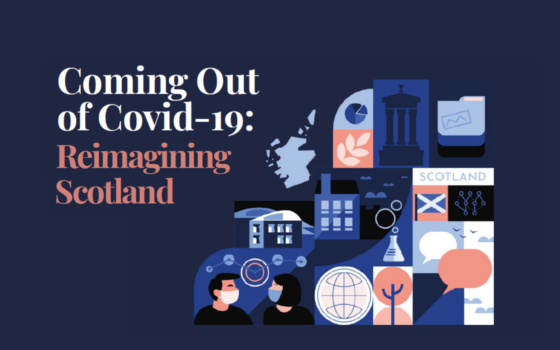Few people would want to put themselves in the shoes of the politicians who have had to grapple with unprecedented levels of complexity and uncertainty over the last 20 months. However given that they hold office, then it has been up to them to deal with the extremely difficult and complicated issues posed by the pandemic.
As a member of the Royal Society of Edinburgh’s Post Covid-19 Futures Commission, where I sat on the group examining Scotland’s national resilience, we spoke with scores of companies in all areas and all sectors across the country, with the intention of gaining a real insight into how the pandemic affected them. From these interactions, it’s fair to conclude that the vast majority were, and still are, underwhelmed by the response of the Scottish Government.
More attention must be given to the early stages of the business cycle if we are to build national resilience. Simply put, we need more new businesses.
It’s clear most businesses (and many other parts of society for that matter) aren’t quite able to grasp the complex nature of resilience, especially managing financial resilience. Diversity, adaptability, connectivity and better leadership are just some of the drivers of good resilience planning. One of our recommendations following these discussions was the creation of a business foresighting initiative, which would provide insight on global issues, future ideas and risk mitigation.
There is also an opportunity in the post-Covid business landscape for sector and regional representatives to combine forces instead of everyone automatically turning to the government for an answer in times of difficulty. Additionally, local organisations, including councils, have inherent local knowledge which can enable better collaboration with business to address the opportunities offered by climate change and net-zero, amongst other priorities.
In the context of the long-term legacy of Covid-19, our work also highlighted that more attention must be given to the early stages of the business cycle if we are to build national resilience. Simply put, we need more new businesses. Calls have been made to the government for greater engagement with entrepreneurs and additional funding to support innovation across key sectors.
By their very nature, businesses and their leaders are resourceful, resolute, and inventive. Fear and control must stop; instead let’s thrive by informing, educating and building resilience, trust and respect with empowerment and collective responsibility.
What might be achieved if this determination is harnessed in a collaborative way? Just as businesses helped the country through the pandemic, policy and decision-makers must now return that support. By doing so, they will create an environment in which businesses can sustainably grow and prosper.
Jim Fairbairn OBE FREng FRSE is Chief Executive Officer of Megger Group and was commissioner of the Building National Resilience working group within the Royal Society of Edinburgh’s Post Covid-19 Futures Commission.
The Post-Covid-19 Futures Commission recently published its report Coming Out of Covid-19: Reimagining Scotland, which you can read in full here. To learn more about the Building National Resilience workstream, read the Working Group summary reports here.



